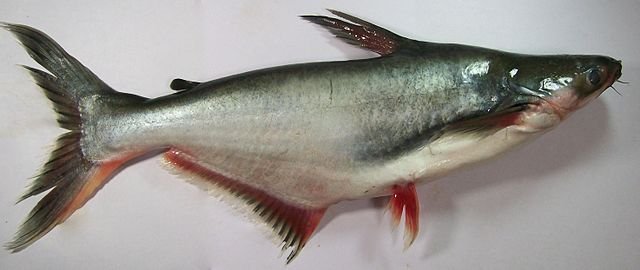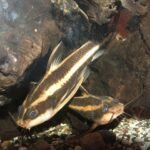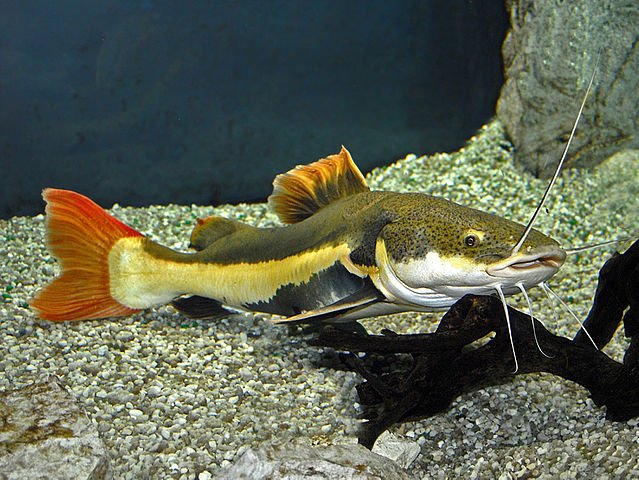
Pangasius is a major player in the aquaculture industry. However, the pangasius farming industry heavily relies on fishmeal (FM) for the feed, raising sustainability concerns.
Black soldier fly larvae (BSFL) meal emerges as a promising solution, and this study explores its potential as a complete substitute for FM in the diet of Pangasius catfish. Researchers from Kerala University of Fisheries and Ocean Studies evaluated the effect of BSFL meal fermented with organic acid, as a complete replacement for fishmeal in diets, on growth performance and immune-related gene expressions in pangasius (Pangasianodon hypophthalmus).
BSFL Meal: An Inexhaustible Protein Source
Black soldier fly larvae (BSFL) are natural decomposers that break down organic waste. They can be efficiently reared from food scraps, offering a sustainable and eco-friendly protein source. BSFL meal is emerging as a viable alternative to fishmeal, potentially reducing the pressure on wild fish populations.
BSFL are packed with nutrients containing:
- High protein content (40%): Comparable to FM, providing essential components for fish growth.
- Healthy fats (30%): A source of energy and essential fatty acids for fish health.
- Rich in minerals: Calcium, phosphorus, and other minerals crucial for bone development and overall health.
- Antimicrobial peptides: These natural compounds can offer potential benefits for fish immune function.
Challenges and Advances: Overcoming the Chitin Barrier
One obstacle to using BSFL is chitin (7.8-9.5%), a complex sugar found in the larvae’s exoskeleton. High chitin content can limit nutrient absorption, hindering fish growth. Researchers are addressing this challenge through various processing methods:
- Drying, hydrolysis, and defatting: These techniques enhance nutrient availability by breaking down complex molecules.
- Organic acid fermentation: This innovative method further improves nutrient digestibility and removes some of the chitin. Fermentation also enhances the bioavailability of minerals like calcium and phosphorus.
The Experiment: Pangasius on a BSFL Diet
Researchers conducted an eight-week feeding trial with 300 Pangasius fingerlings. The fish were divided into five groups and fed diets containing varying levels of organic acid fermented BSFL meal (FBSFL) as a replacement for fishmeal:
- 0% FBSFL (control group): Standard diet without BSFL.
- 25% FBSFL: Diet with 25% fishmeal replaced by BSFL.
- 50% FBSFL: Diet with 50% fishmeal replaced by BSFL.
- 75% FBSFL: Diet with 75% fishmeal replaced by BSFL.
- 100% FBSFL: Diet with complete fishmeal replacement by BSFL.
Results: Pangasius Thrives on BSFL Meal
Here’s what the researchers found:
- Growth and survival unaffected: Including BSFL meal, even with 100% replacement, did not hinder the growth, feed conversion ratio, or survival rate of pangasius.
- Enhanced protein content: Interestingly, pangasius fed increasing levels of BSFL meal showed a significant increase in body protein content.
- Healthy enzymes and antioxidants: The study observed no negative impacts on digestive enzymes or liver function. Notably, higher levels of BSFL meal in the diet led to a significant increase in the fish’s total antioxidant capacity.
- Immune system stimulation: Pangasius fed a 25% BSFL meal diet showed significant upregulation of transferrin, a crucial protein for the immune system.
- No liver damage: Examination of liver tissue revealed no adverse effects from including BSFL meal in the diet.
Benefits for Pangasius Farmers
Replacing FM in pangasius diets could significantly benefit the industry:
- Reduced production costs: Using FM-free feed can lower the overall expenses of farming pangasius.
- Sustainable practices: Promotes environmentally friendly aquaculture by reducing reliance on fishmeal.
Conclusion
This study provides strong evidence that fermented BSFL meal can completely replace fishmeal in pangasius diets without compromising fish health or growth performance. Additionally, BSFL meal offers potential health benefits by enhancing antioxidant capacity and potentially stimulating the immune system.
Stay Always Informed
Join our communities to instantly receive the most important news, reports, and analysis from the aquaculture industry.
Given its sustainability advantages, BSFL meal holds great promise for the future of pangasius aquaculture and potentially for other fish species. Further research can explore the economic feasibility and large-scale implementation of BSFL meal in commercial aquaculture settings.
The study was funded by the Plan fund of Kerala University of Fisheries and Ocean Studies.
Contact
Chiranjiv Pradhan
Fish Nutrition and Feed Technology Laboratory, Department of Aquaculture, Kerala University of Fisheries and Ocean Studies
Panangad, Kochi 682506, Kerala, India
Email: cpradhankufos@gmail.com
Reference
Ardra, M., Pradhan, C., Das, S., & Pillai, D. (2024). The effect of fishmeal replacement with organic acid fermented black soldier fly (Hermetia illucens) larvae meal on growth, nutrient utilization, metabolic enzyme activity, antioxidant status and immunity in Pangasius (Pangasianodon hypophthalmus). Aquaculture, 591, 741114. https://doi.org/10.1016/j.aquaculture.2024.741114
Editor at the digital magazine AquaHoy. He holds a degree in Aquaculture Biology from the National University of Santa (UNS) and a Master’s degree in Science and Innovation Management from the Polytechnic University of Valencia, with postgraduate diplomas in Business Innovation and Innovation Management. He possesses extensive experience in the aquaculture and fisheries sector, having led the Fisheries Innovation Unit of the National Program for Innovation in Fisheries and Aquaculture (PNIPA). He has served as a senior consultant in technology watch, an innovation project formulator and advisor, and a lecturer at UNS. He is a member of the Peruvian College of Biologists and was recognized by the World Aquaculture Society (WAS) in 2016 for his contribution to aquaculture.







